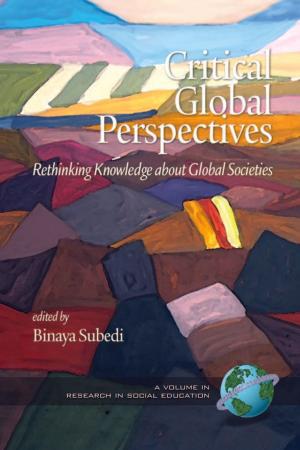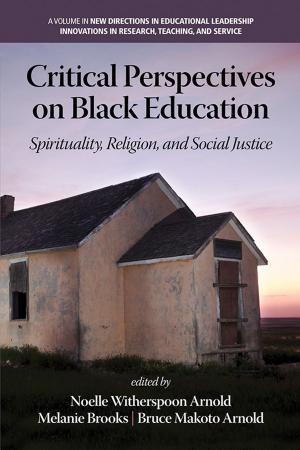Research Methods in Social Studies Education
Contemporary Issues and Perspectives
Nonfiction, Reference & Language, Education & Teaching, Higher Education, Social & Cultural Studies, Social Science| Author: | ISBN: | 9781607525202 | |
| Publisher: | Information Age Publishing | Publication: | March 1, 2006 |
| Imprint: | Information Age Publishing | Language: | English |
| Author: | |
| ISBN: | 9781607525202 |
| Publisher: | Information Age Publishing |
| Publication: | March 1, 2006 |
| Imprint: | Information Age Publishing |
| Language: | English |
This volume fills a significant gap in the scholarship on social studies education by providing thoughtful reflections on research methods in the field. It is not a “how to” guide but an exploration of key issues related to the design and implementation of empirical studies. The authors are active researchers who use varied methods in diverse settings—including historical research, international comparative studies, survey research, interviews with students and teachers, classroom observations, selfstudies and action research, and emancipatory methodologies. They use their own experiences to examine such topics as the conceptualization of research questions, relationships with participants, researchers’ identities, and elicitation of students’ and teachers’ thinking. This collection should become indispensable for both beginning and experienced scholars in social studies.
This volume fills a significant gap in the scholarship on social studies education by providing thoughtful reflections on research methods in the field. It is not a “how to” guide but an exploration of key issues related to the design and implementation of empirical studies. The authors are active researchers who use varied methods in diverse settings—including historical research, international comparative studies, survey research, interviews with students and teachers, classroom observations, selfstudies and action research, and emancipatory methodologies. They use their own experiences to examine such topics as the conceptualization of research questions, relationships with participants, researchers’ identities, and elicitation of students’ and teachers’ thinking. This collection should become indispensable for both beginning and experienced scholars in social studies.















